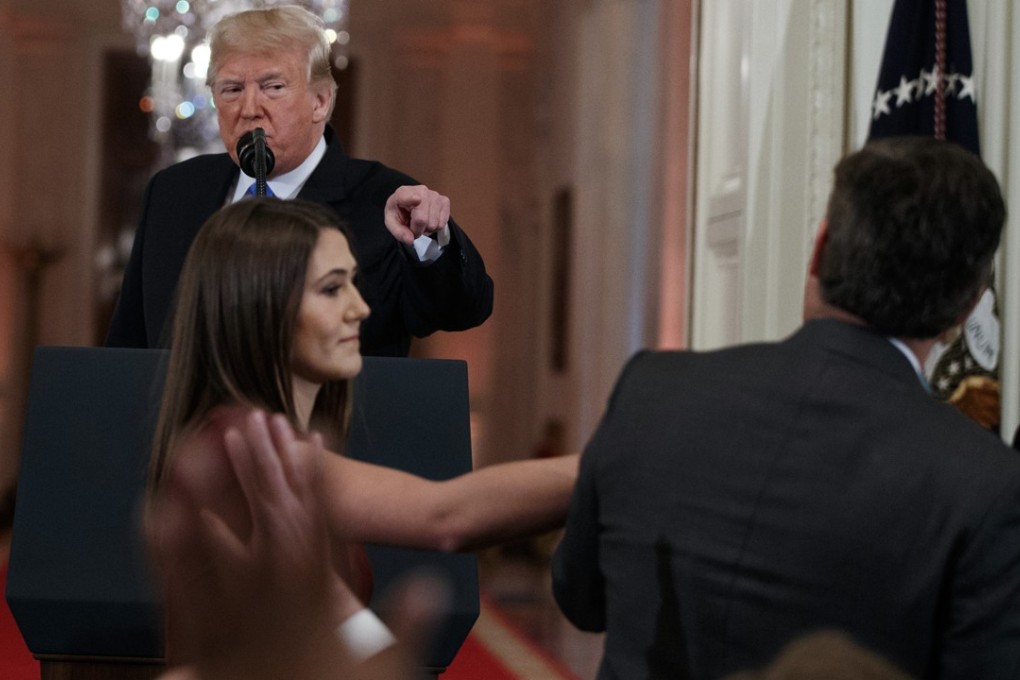Beyond ‘fake news’: Donald Trump takes steps against journalists that undermine press freedoms around the world
- Owen Churchill says the US president’s recent actions and statements amount to giving licence to any authoritarians who want to silence critics and coverage

On November 8, one day after the White House shared a doctored video to justify banning a journalist from access to its press briefings, Donald Trump issued a presidential proclamation to mark “World Freedom Day”.
“We stand in solidarity with those who still live under tyrannical governments,” his statement said, “and emphasise that the world will be better off when all governments respect the right of all people to live in freedom”.
Even by the standards of the noisiest presidency in US history, the irony was deafening.
Since entering the White House, Trump and his minions have sought to chip away at one of the bedrocks of a free society: a press that is able to hold those in power to account.
Having determined that simply labelling his detractors “fake news” – rhetoric that has pitted huge swathes of the American population against the media, sometimes with violent results – was not enough, Trump last week took tangible steps to dismantle that bedrock, one guaranteed by the First Amendment.
